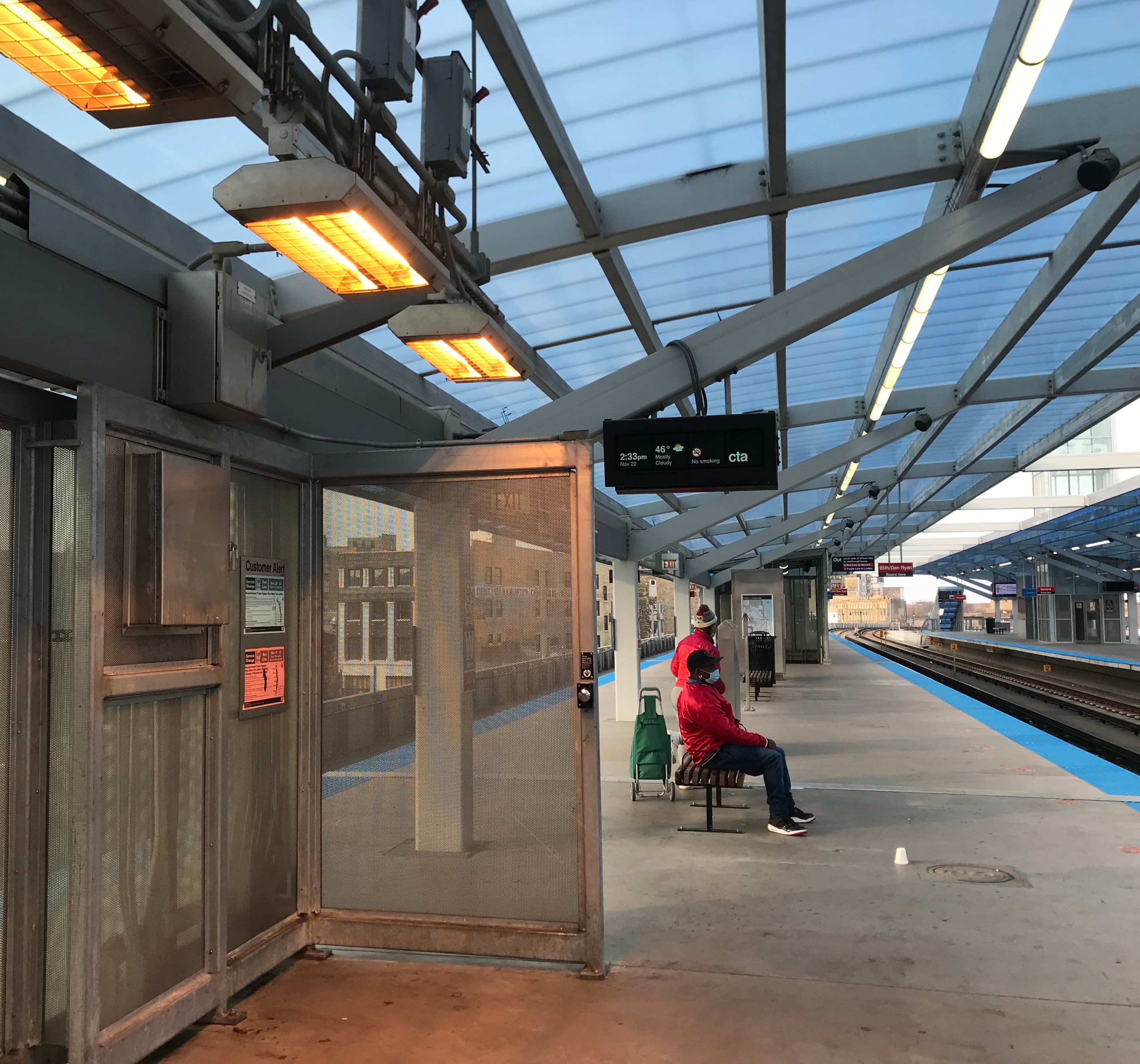Clarification: Streetsblog Chicago is not calling for enforcement of the CTA rule against sleeping across multiple seats. Rather, we want Transit Ambassadors who can offer referrals to services for unhoused people who might want them. And, big picture, we want the city to provide housing for all who need it. – J.G.
Kyle Lucas, cofounder of the sustainable transportation advocacy group Better Streets Chicago recently tweeted about coming across a flyer at a CTA 'L' station decrying “crime, homelessness, and drug use" on CTA trains. The flyer argued that "very little is being done to combat these problems" and that "the CTA needs to recognize the severity of the problem and do something about it."
On that last point, the maker of this flyer and I agree. As CTA ridership has fallen in recent years due to the rise of ride-hail, and especially during the COVID-19 pandemic, when transit use plummeted, an "anything goes" culture has developed on CTA trains, particularly at night.
We've recently seen an increase in violent crime on the CTA, some of it totally random. Smoking on trains, which is a serious problem for people with respiratory issues, has become commonplace. And while no one should be shamed for having to take shelter on transit, Chicago's failure to address its homelessness crisis means that large numbers of people are sleeping across multiple seats. All of this discourages ridership, and if the system is ever going to fully recover from the pandemic, city leaders need to get serious about addressing these issues.
Scanning the QR code on the flyer takes you to the website for the petition, which was launched by Jack Hurst. The petition calls for taller, more effective fare gates to prevent people from jumping over or crawling under them. It argues that there should be more police officers on the CTA, and that the system should have its own police force, similar to Metra. And the petition calls for deploying "mental health and drug addiction professionals and violence interrupters" at the endpoints of each train line.
While Hurst did a decent job of identifying the issues that are impacting safety and quality of life for CTA riders, Lucas took issue with the petition's proposed solutions.
Unfortunately, this petition lacks any sort of empathy for those experiencing homelessness, nor really make any demands for solutions that would actually make the CTA safer. Their suggestions of larger gates to stop fare evasion also misses the mark. pic.twitter.com/z69sbp8YNR
— kyle tear down that highway lucas (@itskylelucas) November 23, 2021
Streetsblog Chicago has previously discussed the need for unarmed transit ambassadors on CTA trains and some bus routes. When police officers or security guards with guns are the main strategy for preventing problematic behavior, it increases the chances of the enforcement of minor infractions escalating to bloodshed.
In March of this year Streetsblog proposed using federal COVID stimulus funds for homeless outreach on trains. It would’ve also been nice for pandemic relief money to have funded housing as opposed to policing, which received a large share of Chicago’s COVID funds.
Again, I sympathize with Hurst's concerns, but their desired goal for a higher police presence on CTA trains would create an unwelcoming environment for many people of color. Unarmed transit ambassadors can deal with unruly passengers in a way that doesn’t create harm or intimidation.
While I agree with the desire for more homeless outreach, there needs to be a more long-term fix. That would likely be housing the unhoused and linking them with supportive services.
As for the petitioner’s desire to see more effective fare gates, the cost of implementing these changes would surely exceed the small amount farebox revenue loss they would prevent. That money could be better invested in a reduced fare program for low-income residents, something the Active Transportation Alliance has proposed. As I've previously noted, fare evasion is a symptom of poverty. High fines and/or arrest should not be punishment for being economically challenged.
Violent crime, smoking on the 'L', and train cars that function as homeless shelters are real issues the CTA should be taking seriously. But we encourage readers to advocate for transit ambassadors and holistic solutions for homelessness over more police and overzealous responses to the relatively minor issue of fare evasion.




